PRESERVING A MILITARY LEGACY FOR FUTURE GENERATIONS
The following Reflections represents A1C James Strickland’s legacy of his military service from 1955 to 1960. If you are a Veteran, consider preserving a record of your own military service, including your memories and photographs, on Togetherweserved.com (TWS), the leading archive of living military history. The following Service Reflections is an easy-to-complete self-interview, located on your TWS Military Service Page, which enables you to remember key people and events from your military service and the impact they made on your life. Start recording your own Military Memories HERE.
Please describe who or what influenced your decision to join the Air Force.

The first item seeing the “Memphis Belle” during its WWII bond drive, sitting on a wooden platform in front of the courthouse in Dayton, Ohio, when I was 6 years old.
The second item, late fall 1943 or early spring 1944, was standing in the middle of the street watching hundreds of C-47s towing gliders toward WPAFB near Dayton, Ohio. There were B-17s in the mix as well.
The third item was my being involved in the Civil Air Patrol. I loved it the summer camps and exposure to the Air Force I received through CAP.
I knew that this is what I wanted to do.
Whether you were in the service for several years or as a career, please describe the direction or path you took. What was your reason for leaving?
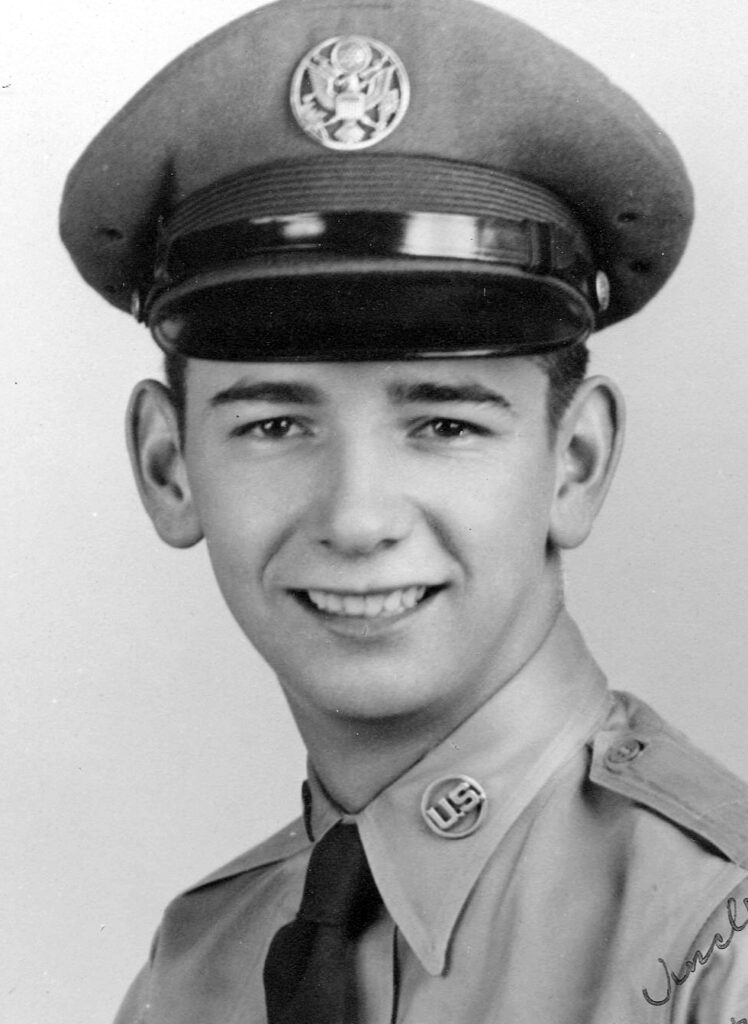
I don’t believe that, in June 1955, we could choose our career field before enlistment. I had grown up on a small farm near a small town in western Ohio and was excited to start my life when I graduated on May 25, 1955.
I enlisted, and basic training at Sampson AFT, NY, was a wonderful experience. I felt that I had a leg up on most enlistees since I had been a cadet squadron commander, had competed in drill competitions, had spent two weeks at a CAP summer camp at WPAFB, and had some knowledge of what to expect. We had an outstanding flight, as evidenced by the streamers on our guide on as we marched. As we all did, I scored high on all aspects of the AQT tests and hoped for a crew job flying or working with/on aircraft. We were nearing the conclusion of basic, and everyone was anxious to learn of our assignments to tech school. Many on our flight learned that the Air Force needed Air Police and found our names on the roster. Mine was one name on the list.
It was not what I had hoped for, but I was not disappointed. I was in the Air Force, where they needed me. So, I eagerly looked forward to the upcoming training at Parks AFB, California. Our tech school flight now contained 36 airmen trained in Air Base Defense, including defense/security, law enforcement, weapons, self-defense, UCMJ, bomb detection, radio, and other subjects. The training was intense, and, at the conclusion, we were trained to protect an airbase and enforce the UCMJ. I did not feel that the training had been hard. I decided to use my off time to pursue a lifelong dream, to fly, so I hitchhiked to the Livermore Sky Ranch airport and took lessons. I had soloed before tech school was completed.
Many of us received orders that would take us to foreign lands. I was excited when I learned that I was one of these folks. I would find that the next three years at Evreux-Fauville Air Base, France, would be the most exciting, unforgettable period of my life. I was where much history had been made, walked in the same places as the Roman Legions, flew in the air of great air battles, walked the beaches of the greatest invasion in history, stood on the beaches where my heroes had died, served as a color/honor guard at their gravesites and traveled to places I had read of in history books. I felt so small. Too soon, my three years at EFAB were over, and I rotated to the land of the Big BX. I sat on the TWA Super Connie on the way home and relived these past three years. We don’t do it alone. We are a member of a team, and I had unbelievable mentors who aided me in becoming a seasoned, highly qualified individual in my career field. I was happy that the Air Force had chosen it for me.
I took a short break and re-enlisted for another six years. At Charleston AFB, SC, I was assigned to AP Investigations and had several more great mentors. I enjoyed this assignment, but the AF had other plans for me and asked that I “volunteer” for an assignment. This took me to Washington, DC, as a security detail member for President Eisenhower’s Air Force One, Columbine III. Sadly, I had to leave this assignment and the Air Force due to a death in my family and the need for me to return home to support my family. It was a sad drive back to Ohio since I was leaving what I so loved behind.
If you participated in any military operations, including combat, humanitarian and peacekeeping operations, please describe those which made a lasting impact on you and, if life-changing, in what way?
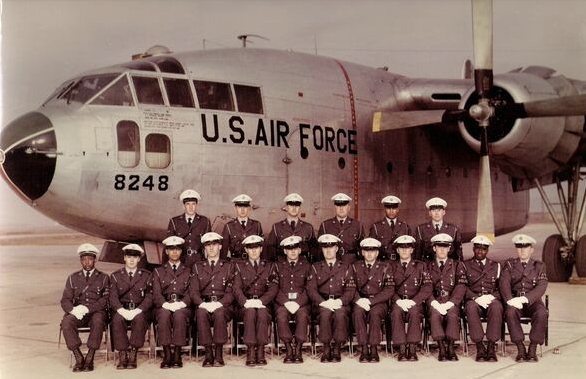
As an Air Policemen/women, we would be involved in security/law enforcement situations that were sometimes unpleasant. I was not in combat or involved in any military operations. We were, however, always subject to being moved to a forward base to provide airbase security and were always prepared to do so. We had been issued a primary weapon (mine was a WWII M1 Garand sn 1554229), helmet, and other combat-related equipment.
We were alerted when Sputnik was launched. There was confusion since no one seemed to know where the threat was coming. Nor did we know what the Russian’s intent was when we learned we were to look for a satellite.
We were alerted of the Hungarian Revolt. No one knew what the Russians might do.
We were alerted when the Marines went into Beirut. We were a forward staging base. Again, no one knew what the Russians might do.
There were other alerts, and we were ready to move forward should the order come.
Did you encounter a situation during your military service when you believed there was a possibility you might not survive? Please describe what happened and what was the outcome.
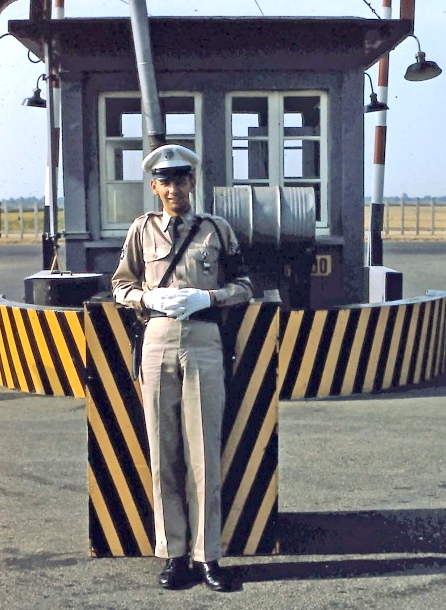
There was one incident where I felt that it would not turn out so well. I had been on Town Patrol (1957) and was in the process of turning in my weapon (45 model 1911) when my old flight commander, S/Sgt JJ Flynn, asked me If I could help him out. I said, “Yes, anyway I can.” He explained that he was short-handed on his flight and had a new airman on his first post who was spooked. He needed some time to rearrange his flight to cover all posts. So I reholstered my weapon, and we headed to the marguerite. There, he explained to the young airman that I would help him until he could be relieved.
Sgt. Flynn departed. The young airman had just arrived and was now on the post. He said there was someone in the hangar. I explained that, during the day, the hanger heats up, and at night, it cools off, making all kinds of sounds. I explained that he would learn the normal sounds. He insisted on standing under the ramp lights, and I explained that this was not where he should be, that he made a good target and had no vision outside the ring of light. We walked around the marguerite while I explained his duties and how to best perform them. I asked him if he felt comfortable enough for us to separate. I reviewed the “dos and don’ts” just before we separated.
We had been in the darkness, behind the hanger, when we separated. He was carrying a carbine with a 20-round magazine. I observed him as he worked his way around the ramp. I watched as he disappeared behind the hanger. But he never came out the other side. I walked toward that side, and as I came around the hangar, I could see him standing under the lights about 30 yards away. I took a couple of steps toward him when he yelled, “HALT.” I yelled back, “STRICKLAND!” as he jacked around into the chamber. I had on my blue suit with a white hat. I tossed my hat to my left and kissed the concrete as he began firing. He obviously didn’t know where I was since he was shooting high and to my left toward where I had thrown my hat. I pulled my 45 and thought that if he started firing my way, I would have to shoot. Fifteen rounds later, Sgt. Flynn pulled up and disarmed him. I’ll go into a bit more detail about how Sgt. Flynn handled the situation later in my profile.
Of all your duty stations or assignments, which one do you have fondest memories of and why? Which was your least favorite?

Sampson AFB, NY – Basic training. This, to me, was much like the CAP summer camp, only a bit more intensified. I weighed 138 pounds when I arrived and 158 when I left 11 weeks later. I enjoyed basic and had many fond memories of this assignment.
Parks AFB, CA – Tech school. It was called Air Base Defense School but was Air Police training. We had mastered (or were supposed to have) marching, care, cleaning our personal areas, etc. Here, we would learn base and self-defense, weapons care, cleaning, and qualifying. We would learn basic radio usage, telephone wire repair, bomb detection, and other security and law enforcement techniques. A fond memory: we were on the first flight to the firing range that day. We were firing our M1 Garands (we were the old guys).
The flight was positioned on the firing line. The range officer announces, “Ready on the left, ready on the right, ready on the firing line, commence firing!” At the first volley of fire, a jackrabbit bounds from behind one of the targets. All rifle fire now bears down on the rabbit. Geysers spit all around the rabbit as he bounds over the hill. You could hear the “ping” as clips were ejected. It was continuous fire, with over 200 rounds fired. It becomes extremely quiet, and we all know we are in for good chewing out. Range officer announces, “Reset the firing line and give that rabbit a medal for our lousy shooting.” Nothing else was said, and we continued our training. I started taking flying lessons at the airport down the road toward Livermore. Oh, I thought it a good idea to get to know the shipping clerk. He wound up being from Ohio, and I told him I would like to be assigned to France. At graduation, my orders were to report to APO 253. He didn’t know where it was, only that it was in France.
Manhattan Beach AFS, NY – We reported here for deployment to our assignments. It was crowded. Our quarters were WWII barracks. Each morning, we were to check the bulletin board for orders and, if not listed, had the day off until the next morning, free to do as we wished. I was on a manifest for a C-118 flight to Orly but got bumped at the last minute. Each day, I checked to find that I had more free time in NY. I spent much time at USO dances (I met a lovely young lady – Mary Ellen O’Kane), Radio City Music Hall, roller skating, and just trying to stay active while waiting.
Finally, the day came when I saw my name on orders: Many other troops and I were to report to the Brooklyn Navy Yard for shipment to Bremerhaven, Germany. At the dock, I would see my new home for the next 11 days: USNS General William O Darby Jr.
USNS Gen. Wm. O Darby Jr. – she was a WWII troopship 609 feet in length. Our flight sat on the dock, waiting for our turn to board. It was strange sitting there listening to the noises of the cranes lifting cargo, the smell of diesel and salt water, the bullhorn announcing boarding instructions, the hulk of the ship looming over us, and all the troops sitting in groups waiting to board. It was surreal. Our turn finally came; we boarded and were escorted to our berthing area, which was the third deck down and at the bow of the ship. We departed that afternoon, sailing past the Statue of Liberty. I wondered about my grandparents and their first thoughts as they saw her when they came in from Europe on a small steamship in 1905/09. The first couple of days weren’t bad, with a slight roll. Then, it wasn’t very nice for the next 5 days when we were restricted to below deck. We were in deep swells, many rolls and dives into swells. The captain announced 50-60 foot swells. I was seasick for these five days. We stopped in Southampton, England, dropping off some folks and supplies, and then on our way past the White Cliffs of Dover. We had passed through the same waters the greatest armada in history had passed 11 years before.
The following day, we arrived in Bremerhaven, Germany. It was unlike Southampton, where everything was colorful and bright. Here, it was grey and dank. We waited our turn to deboard and go to a numbered train for our final destination. Finally, my number was called, and I disembarked on my train, which was going to Paris. It was not until I boarded the train that I knew where I was going – to Evreux, France, 60 miles from Paris. My shipping friend had done me well.
Evreux-Fauville Air Base, France – I was assigned to the 465th Air Police Squadron, 465th Troop Carrier Wing. This would be my best and happiest assignment during my time in the Air Force. I could write a book about this assignment. I worked in security for a few months, in law enforcement, and then Town Patrol. I made E3 and then E4 in less than two years. I have to tell you now why I wanted to be close to Paris. I had taken care of my farm neighbor’s farm while he and his wife had gone on vacation. They had mentioned before they left that the wife’s niece, Evelyn Belge, would be staying at the farm.
As I milked one of the three cows on the first day, I heard a voice behind me. I turned to see this most beautiful girl behind me. She introduced herself. I taught her how to milk cows. I was 16, and she was 19. We talked about our countries. I told her I would look her up if I got to Paris. I would meet her, her fiance’, and her family and visit several times while at EFAB. We would all have dinner with her brother in Evreux just before he shipped out to Brazzaville. There are so many stories I could tell. I joined the Aero Club d’Eure and logged quite a bit of time in their L-4 Piper, Sipa, Jodel, and mini-Jodel. Too soon, the time to rotate came. I spent a little time at home trying to adjust to the new pace of life.
Charleston AFB, SC – I chose Charleston since I had several friends there who had been at Evreux. When I reported in, I was surprised when I was assigned to Air Police Investigations. Someone was looking out for me. The work was easy and exciting. I was responsible for securing the area of an F-100 crash about 7 miles off base. There were a lot of beach parties. I would meet my future wife on a weekend pass back to Ohio. I had joined the base Aero Club, gotten my private ticket, and had checked out in the T-34. Life was good. Then, the request to ‘volunteer.’
Washington National Airport, DC – I can’t say much about this assignment. We lived on the airport, atop a hill overlooking the airport in WWII, one-story, type buildings. Air Force One, Columbine III, was kept in a hanger toward the airport’s north side. She was kept clean and very shiny by the maintenance crews while we provided security of the area and Columbine III. Sadly, I received a telegram that concluded my Air Force career and had to leave this, another great assignment.
From your entire military service, describe any memories you still reflect back on to this day.

I reflect back to all of them. All the assignments brought me into contact with some of the most amazing and wonderful mentors who helped make me who I am today. Memories of good and bad times will be with me forever. Come to think of it, I don’t recall very many bad times. I developed lifetime friendships that continue to this day.
Sadly, as the years have passed, so have some of these great and wonderful people. I had the opportunity to meet and become friends with people who flew during WWII, the Berlin Airlift; they flew F-4s, F-105s, B-52s, C-123s, and C-130s in Vietnam. I had dined with (Col. Joe Jackson) and met several MOH winners. I challenged Gen. Curtis Lemay one day while on duty with AF1. I became friends with members of the French Resistance and the RAF. Evreux had been a German bomber base during WWII. I have had the wonderful opportunity to visit the D-Day beaches as a member of a color guard, to walk the beaches, and to travel some of the routes my father had traveled. He was an M-18 Hellcat tank destroyer commander during WWII. I thank the Air Force for giving me the opportunity to realize nearly all of my dreams.
What professional achievements are you most proud of from your military career?
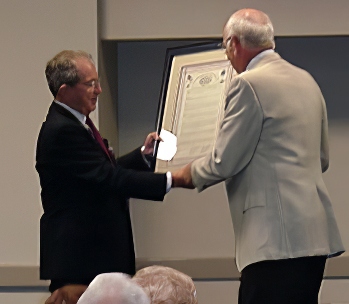
The interactions, the mentoring, the friendships, and the training I received while in the Air Force provided me with an understanding of management, which I used quite effectively in the course of my working life. I progressed from a bank teller into programming, where I moved up quickly from programmer to Regional Data Centers Financial Manager for NCR.
There have been numerous State and National awards and recognitions from Senator Wayne Allard, the Air Force Association, Disabled Veterans, and others. None of these would have occurred had I not served. The six years I served were the most important six years of my life.
I had attended a 465th TCW reunion at Col. Gerald Teachout’s in South Dakota and had volunteered to do the next one. The next one became five more. During these reunions, we would learn much of our interactions at EFAB. Col. James Barlow recommended that I be recognized for my contributions to the Wing, by my actions at EFAB, as well as contributions to the continuation of the Wing reunions. Thus, on September 25, 2000, I was presented with a “Certificate of Deep Appreciation” and made an honorary Colonel and Command Pilot of the 465th TCW. M/Gen Charles Wilson made this presentation at the Las Vegas reunion.
On May 30, 1996, I was honored by the SECAF with an orientation ride in an F-16. Senator Allard and others in the AFA chapter made this possible. My pilot that day was Capt. Mitch Neff, a true AF professional, gave me an E-ticket (for those who don’t know what an E-ticket is – it is a Disney World ticket that allows you to ride any ride) ride. Let’s just say that my body was unprepared for the high g’s we experienced that day, but I got it all in the “bag.” It was a low-level flight through a canyon, then a steep climb to altitude. The F-16 will be like the B-52 – long service life. I learned far more than I ever imagined I would and gained a new respect for those who fly our fighters. I reported my experience back to Sen Allard. We chatted about what I had seen and experienced.
There are so many to thank: Sgt JJ Flynn, Capt Nathaniel Tucker, Col. Jim Barlow, Lt. Carl Whittemore, Sgt Thurber, and Bryant, Sgt. Leon Radcliff, Capt/Dr. Shore (dentist and fellow pilot at the French airport), the Sunday hanger flying bunch at Aero Club d’Eure, and many whose names I can’t remember. They made me who I am, and I am grateful for their guidance, their friendship, and their belief in me.
Of all the medals, awards, formal presentations and qualification badges you received, or other memorabilia, which one is the most meaningful to you and why?

The greatest honor, and there have been many, has to be the presentation of a “Certificate of Deep Appreciation,” which was presented to me by M/Gen Charles Wilson, USAF (ret), at the 2000 465th Troop Carrier Wing Reunion where I was made an honorary Colonel in the Wing. I was extremely honored to have received this honor by the Wing.
The recommendation and support of Sen. Wayne Allard in providing the F-16 ride was a high point in that a US Senator recognized me and sought my feedback following this flight.
If you have the opportunity to attend any of your unit reunions, I would suggest you take advantage and do so.
Which individual(s) from your time in the military stand out as having the most positive impact on you and why?

S/Sgt J.J. Flynn. – I had related earlier how he had sought my assistance one night when he had a problem. He talked to me as an equal, as a friend, without consideration to rank. He could have ordered me to assist him.
Specifically, I will relate to the aftermath of the shooting incident mentioned earlier.
After he had disarmed the security guard, I stood up and retrieved my hat, and approached Sgt. Flynn and the shaken guard. I said to the guard, “You are very lucky; I could have shot you.” Sgt. Flynn then stated to the young airman that what I had said was true. I stood quietly while Sgt. Flynn chatted with his young airman. Fifteen rounds had been expended with no apparent damage or injury. Sgt. Flynn had the young airman pick up all fifteen shell casings as he and I stepped away from the airman.
Sgt. Flynn asked me how I wanted to handle this incident. I told him that the airman was under his supervision and I would go along with however he wanted to handle it. Sgt. Flynn then made a statement that I have used my whole career. He said, “Jim, the Air Force has spent a lot of money training this young airman, and he is an asset. Our job is to protect the assets of the Air Force. He is not in a productive career field for him or the Air Force. So, I want no paper. Let’s see if we can find where he will be productive for the Air Force.”
Sgt. Flynn had a great relationship with the Squadron commander, Capt Nathaniel L. Tucker. The young airman was relieved from the Air Police Squadron. I understood that personnel had re-evaluated his AQT scores and was sending him for training in a new career field. I would love to know what became of this young airman. I learned from Sgt. Flynn, that we should not destroy an airman’s career due to a minor infraction by that airman. We would counsel him or, if necessary, have a chat with his First Sergeant to correct the issue without a negative entry in his 201 files. We left the follow-up with his First Sergeant.
Note – In 1998, at a Wing Reunion, I asked those attending from the 781st TCS if there had been any damage noted around the time of this incident. One of the attendees commented that two 30-caliber slugs had been found embedded in the leading edge of one of the C-119s on the ramp.
List the names of old friends you served with, at which locations, and recount what you remember most about them. Indicate those you are already in touch with and those you would like to make contact with.

Parks AFB – Crutchfield was an inspiration due to his always positive attitude and humor.
Evreux AB – Too many –
S/Sgt.Flynn – his friendship, care of his personnel, and professionalism. (deceased)
Capt. Tucker – assigned me to every assignment possible: color guard, Town Patrol, graves registration, and prisoner escort to Mannheim, Germany. (deceased) I would learn much later that he knew of my grandfather in Kentucky.
T/Sgt Radcliffe’s leadership skills were sometimes questionable, but I learned much from him. I replaced him as NCOIC Town Patrol (deceased)
Jerry Teachout – I would meet him at a Wing Reunion later in life, and we would become great friends. He was a wonderful mentor. (deceased)
Frank Mebane was the AF coordinator for the Univ. of Maryland site at EFAB. He sought my input many times. He guided me through two years of college at EFAB. (deceased)
Numerous French Gendarmes, City Police, French military, and business people, some of whom were in the French Resistance, RAF, or were civilians. Mr & Mrs. Barbey were amazing friends.
Charleston AFB –
Lt. Carl Whittemore – started as my flight instructor with the Aero Club and became one of several sponsors for OCS. We became very good friends. (deceased)
I crossed paths with so many people who impressed me with their management skills and their people skills, and I wanted to model after them. They don’t know how much they contributed to “me.”
Can you recount a particular incident from your service, which may or may not have been funny at the time, but still makes you laugh?
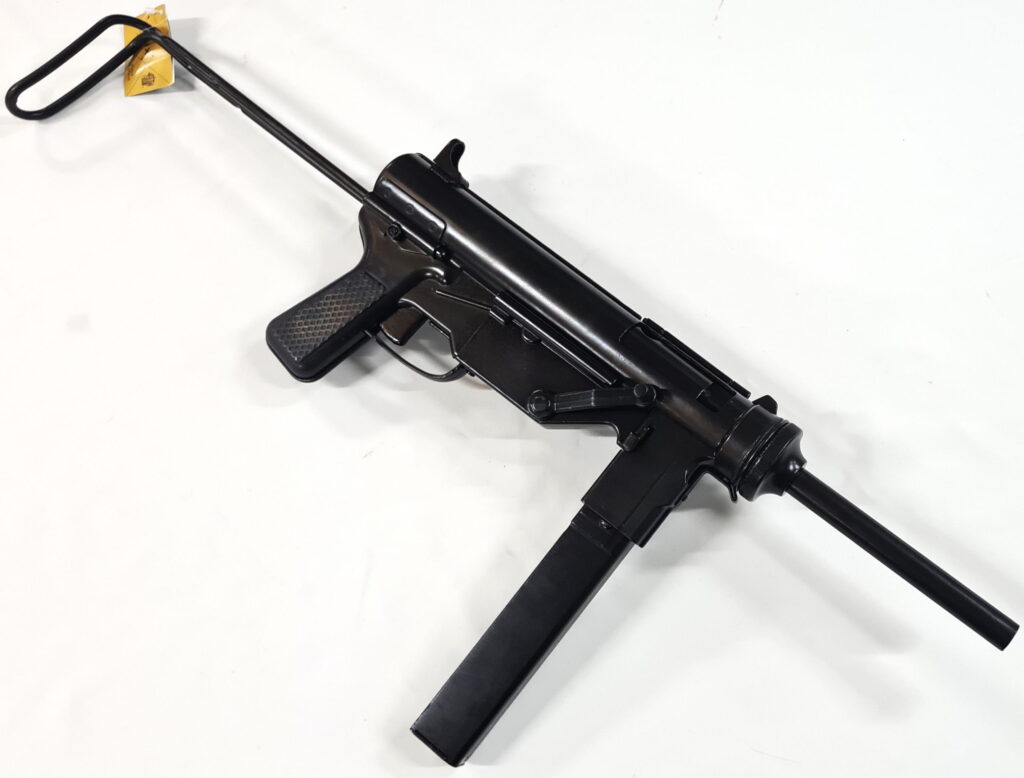
We had numerous practice alerts at Evreux.
When I first arrived, it seemed like we were having squadron alerts every week. The base was nearly new, with mud sidewalks and no entertainment facilities except the base theater. It was austere, to say the least. To the east side of our two-story cinder block barracks stood several apple trees surrounded by high weeds. It was not uncommon to see the on-duty flight commander enter the barracks and announce an alert. Suddenly, there would be a mass of airmen exiting the barracks from the opposite end or some jumping from the second story. Those who had arrived before me had established a hiding place under a couple of apple trees in the high weeds. They were industrious and had hidden a couple of bottles of wine. It didn’t take too long for the NCOs to find out why there were so few for an alert. Oh, and the weeds were suddenly cut, and the alert response improved.
On one of the alerts, Bobby Joe Ellison (Tennessee) had been assigned to law enforcement. During the alert, he was tasked with relieving one of the ramp security guards, who was armed with a 45-cal grease gun and had been inside one of the small post shacks. These were about the size of a one-hole outhouse. Bobby relieved the airman and assumed guard duties. While standing in the shack, he had the grease gun hanging by his finger in the trigger guard by his right leg. Somehow, he released the bolt, and all hell broke loose. By the time the shooting was over, the shack was blown apart, the windows shattered, the door blown off the hinges, and the sides well splintered.
Somehow, Bobby had danced around as each round was fired. He had forgotten that there was no safety on a grease gun. Fortunately, he sustained no injuries other than to his pride and the ribbing that followed.
There were so many other incidents of humor or accidents that were humorous after the fact.
What profession did you follow after your military service, and what are you doing now? If you are currently serving, what is your present occupational specialty?

I started in finance after discharge in 1960. Merchants Bank, Dayton, Ohio, then to Lincoln Federal Savings and Loan, which merged with Citizens Federal.
Citizens Federal initiated a computer department, and I took the aptitude test and was accepted into the programming program.
NCR discovered my abilities and offered me a job with them. I started as a programmer and moved to several management positions to become a data center manager, then a Regional Financial Manager, and retired in 1992. My Air Force experience was invaluable in my career.
So I filled several years, after retirement, of my life doing fun things; I worked at an airline (free travel), worked as a movie extra, real estate, owned a couple of small businesses, and finally went to full retirement. So we would travel a lot, golf, and enjoy life.
What military associations are you a member of, if any? What specific benefits do you derive from your memberships?

I was a member of the Air Force Association for several years, becoming a chapter President and State Vice President. I promoted the Air Force at every opportunity and represented the chapter and State in numerous presentations, meetings, and conferences. It was truly an honor to serve.
I am a life member of Disabled American Veterans. I volunteered to drive the DAV transportation van from Ft. Collins to Denver and Cheyenne for 21 years. It was truly an honor to do this service. I learned much during these trips.
In what ways has serving in the military influenced the way you have approached your life and your career? What do you miss most about your time in the service?

It’s funny that I find myself still folding my towels and clothing in figure nine. I learned so many things from those long-ago days that I do without thought.
Serving provided me with many tools;
Gave me great responsibility and authority.
They provided great mentors who taught me management skills.
If you’re not five minutes early for an appointment, you’re late.
Confidence.
Honor.
Patriotism.
Pride.
Dedication.
When I took my first civilian job, I could not see a sense of mission; that time was not critical or important, and there was a lot of politics in the workplace. It took a while to adjust to this new reality.
Based on your own experiences, what advice would you give to those who have recently joined the Air Force?

Don’t be lazy.
Use your off time effectively – take classes – improve yourself.
Make yourself invaluable to your chain of command.
Be prepared – constantly do the “what if,” but don’t make it overwhelming.
Present yourself as professional in dress, attitude, and bearing at all times.
Be faithful to your oath and, if wed, your wedding vows.
If married, your spouse is also an essential part of the team.
Always be respectful to those above and below you.
As you move up, be a mentor. Remember that we are all “assets,” so protect each other.
Stay positive when the going sometimes is rough.
Have a great career – you are an important team member of the greatest Air Force in the world.
In what ways has togetherweserved.com helped you remember your military service and the friends you served with.
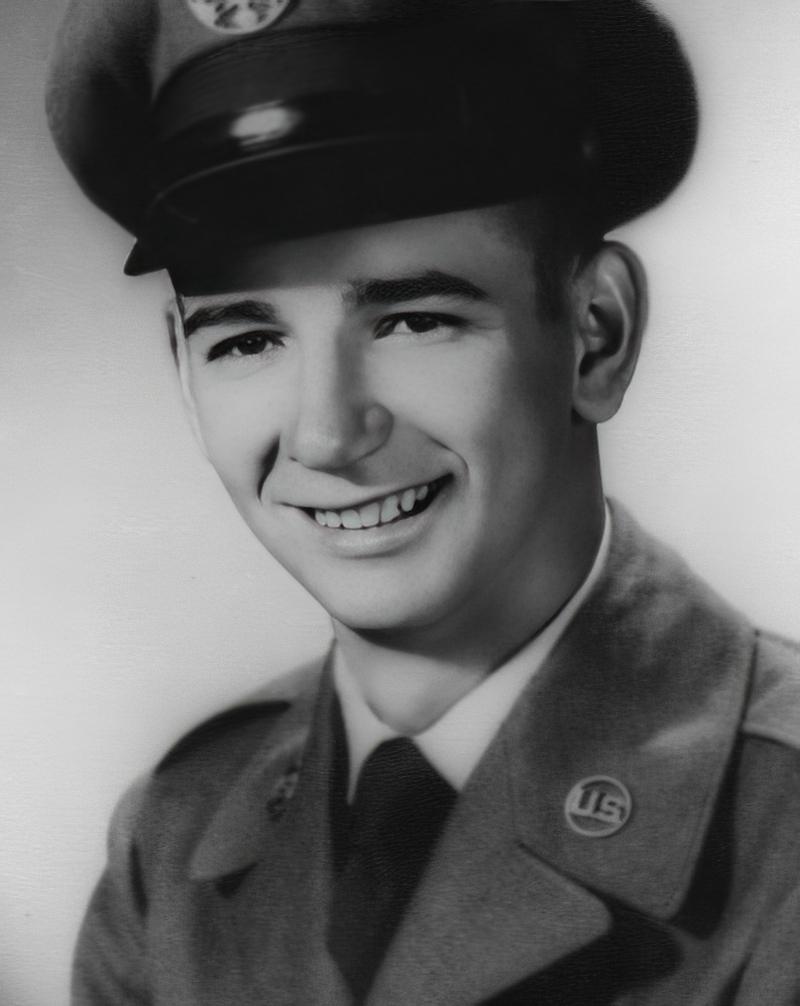
This site has provided me with an avenue to find and connect with a few that I served with. Memories were shared, rekindled, and brought forth forgotten moments. So many of my generation have taken that final flight, and it saddens me that their stories and memories are gone forever.
I would urge anyone who has a family member, who has served, to talk to them, to ask questions about their time in the service, and to remember that folks like them raised their hands and swore an oath to the Constitution when they served. Sadly, in today’s world, so much, too much history is being lost.
I thank TWS for their work but only wish there were a way to expand this beyond just vets so everyone has the opportunity to know the sacrifices made by others for the freedoms we have today.
PRESERVE YOUR OWN SERVICE MEMORIES!
Boot Camp, Units, Combat Operations
Join Togetherweserved.com to Create a Legacy of Your Service
U.S. Marine Corps, U.S. Navy, U.S. Air Force, U.S. Army, U.S. Coast Guard
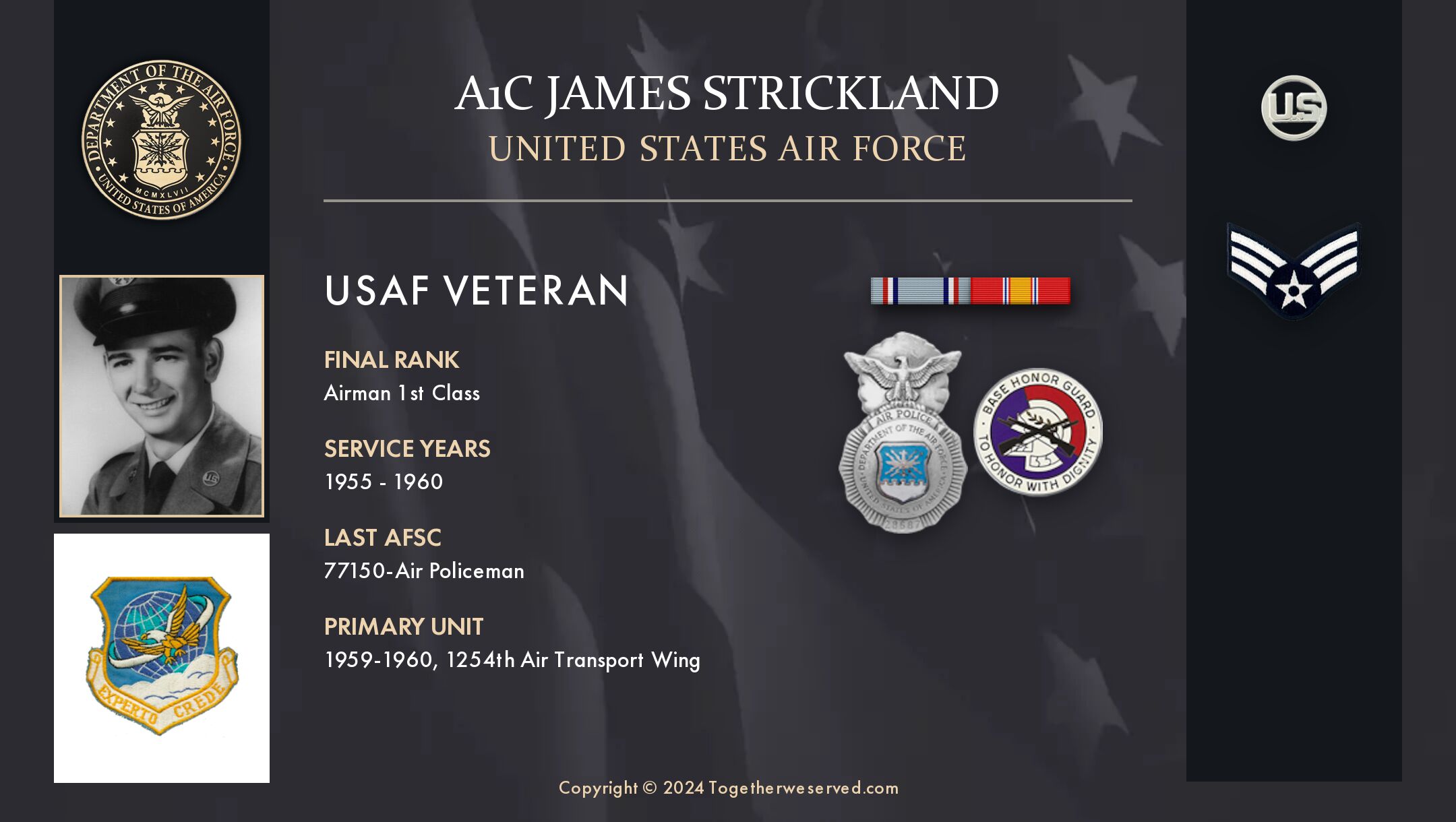
0 Comments